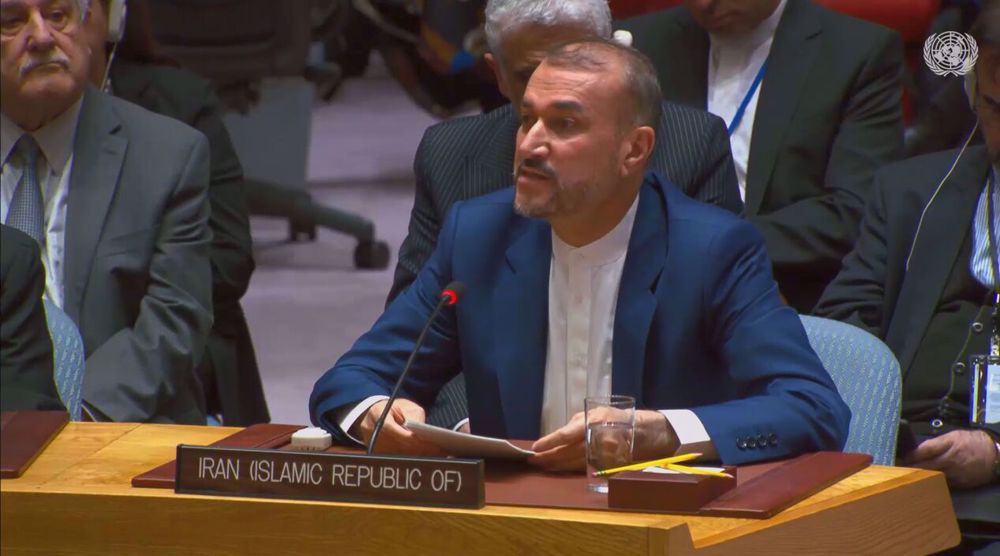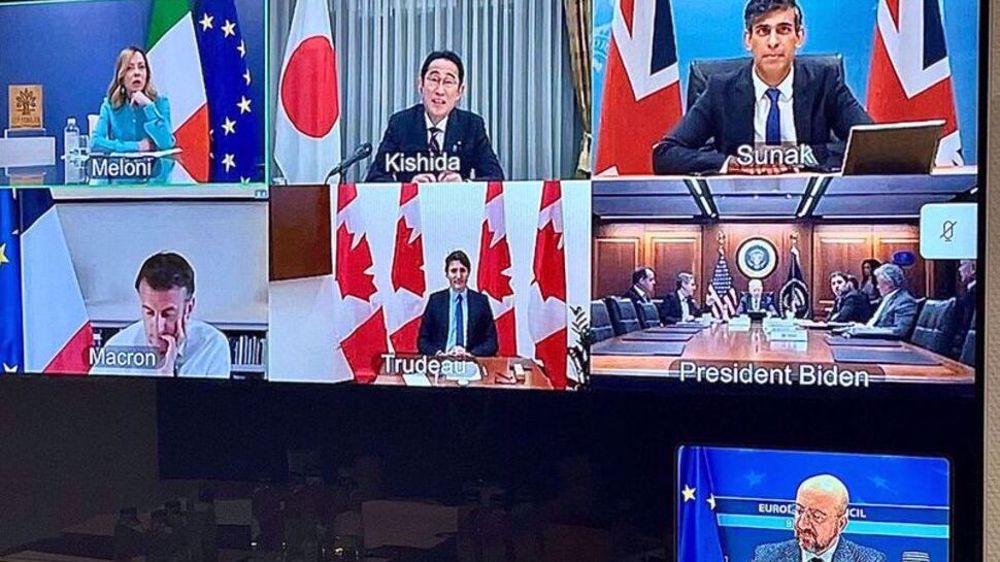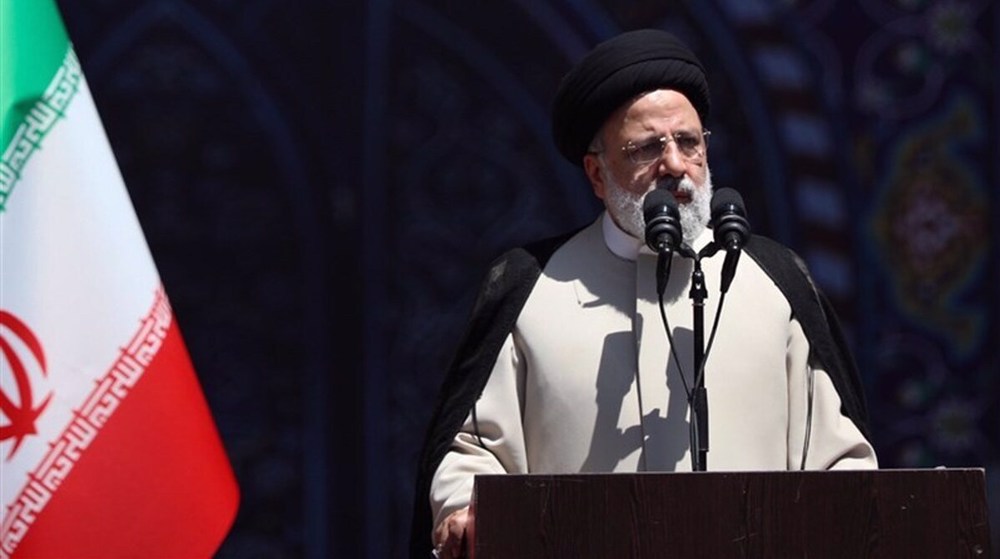Unlike Saudi Arabia, Iran seeks no tension with any country: FM Zarif
Iranian Foreign Minister Mohammad Javad Zarif says unlike Riyadh, Tehran does not seek tension with any country in the region, including Saudi Arabia.
The Iranian foreign minister made the remarks while speaking to a number of Iraqi reporters in Baghdad on Sunday.
Zarif is in the Iraqi capital to make necessary preparations for Iranian President Hassan Rouhani's first visit to Iraq since 2013, which is scheduled to start on Monday and last for three days.
Asked about the possibility of a trip by the top Iranian diplomat to Riyadh, he said he has no plan for such a visit, but at the same time, has no problem with it, because it is Saudi Arabia, which seeks to create tension in the region not Iran.
When asked about the United States' unilateral sanctions against Iran, Zarif said it is the first time that a country is being punished, because it has observed international law and the United Nations' regulations.
He described as a "dangerous phenomenon" the US approach to violate international law and punish other countries due to their commitment to regulations.
Earlier in the day, Iraq’s President Barham Salih said his country will not be part of a regime of unilateral sanctions imposed by the United States against Iran and will do its best to reduce the damage done to the Iranian nation as a result of the bans.
“Let me tell you that Iraq will not become part of the US unilateral sanctions regime against Iran. There is no doubt that we will be affected by these sanctions, but it is certain that we will not be part of them,” he said.
US President Donald Trump withdrew Washington in May 2018 from a landmark nuclear agreement, known as the Joint Comprehensive Plan of Action (JCPOA), reached between Iran and the P5+1 group of countries in 2015, and decided to re-impose unilateral sanctions against Tehran.
Under the deal, Iran undertook to put limits on its nuclear program in exchange for the removal of nuclear-related sanctions.
Iran, Iraq support restoration of Syria's regional role
Meanwhile, the Iranian foreign minister and his Iraqi counterpart Mohammed Ali al-Hakim told a joint press conference on Sunday that Tehran and Baghdad support restoration of Syria's regional role.
Zarif said Iran and Iraq have a common stance on the maintenance of Syria's territorial integrity, its involvement in all regional and international solutions and the fight against terrorism.
Hakim, for his part, said both Tehran and Baghdad believe that the battle against terrorism should continue in Syria and the country's territorial integrity should be observed while the Arab League's chair should be returned to Damascus.
Earlier this month, Syria took part in a meeting of Arab states for the first time since the foreign-backed militancy broke out in the country eight years ago, in what has been seen as another sign that the Damascus government led by President Bashar al-Assad is being welcomed back into the fold.
The development came almost a month after Syrian Deputy Foreign Minister Faisal Mekdad said on February 3 that his country will eventually return to the Arab League, stressing that the Damascus government will never surrender to blackmail or accept conditions for the restoration of its membership to the regional organization.
VIDEO | Press TV's news headline
Situation normal after air defenses fire at 'suspicious objects' in Iran
‘Iran retaliation against Israel ensured no aggression would go unanswered’
US vetoes Palestinian request for full UN membership
Iran sufficed to strike only part of Israel’s military positions: FM to UN chief
IRGC: Israel’s Dimnoa nuclear reactor not among Op. True Promise’s targets
VIDEO | West Asia awakens
'Stop any further Israeli adventurism,' Iran FM tells Security Council











 This makes it easy to access the Press TV website
This makes it easy to access the Press TV website